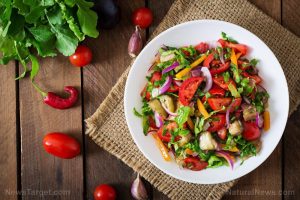
Advertisement
Used separately, black pepper and turmeric offer various health benefits. Both superfoods have anti-inflammatory properties and are rich in antioxidants.
But did you know that you can use black pepper to boost the bioavailability of turmeric?
Why is turmeric good for you?
Turmeric, which belongs to the ginger family, is a spice commonly used in India, Asia and Central America to enhance the color and flavor of various dishes. Studies suggest that turmeric’s many health benefits are linked to curcumin, the spice’s active ingredient. Curcumin is well-known because of its antioxidant and anti-inflammatory effects.
These antioxidant and anti-inflammatory properties can help fight inflammation-related conditions like arthritis and other conditions that affect your gallbladder, liver, skin or stomach. Curcumin may also help protect you from certain cancers.

Black pepper’s benefits are nothing to sneeze at
Black pepper is a popular spice made of ground (or whole) peppercorns, the small, dried, unripe fruits of the black pepper plant.
According to a review, black pepper isn’t just used as a cooking ingredient. It can also be used as a medicinal agent, a preservative and even an ingredient for perfumes!
Black pepper also has anti-inflammatory and antioxidant properties, meaning it could benefit those with inflammatory conditions and reduce free-radical damage. Studies have found that piperine, the main active ingredient in pepper, can help minimize inflammation linked to chronic diseases like Alzheimer’s, arthritis, asthma and chronic gastritis.
Enhancing turmeric’s benefits and absorption with black pepper
Curcumin only makes up about five percent of turmeric, much like piperine in black pepper.
Piperine gives black pepper its rich flavor and inhibits drug metabolism. The liver normally gets rid of harmful substances by making them water-soluble so they can easily be excreted. But if you consume piperine together with curcumin, the former can inhibit this process so that the latter isn’t broken down immediately and eliminated from your system before it can exert its beneficial effects.
This explains how piperine can help make curcumin more bioavailable. Consuming as little as 1/20 teaspoon or more of black pepper significantly improves the bioavailability of turmeric, thus enhancing its health benefits.
Alternatively, you can boost the bioavailability of turmeric by pairing the spice with a healthy source of fat like avocado, nuts, nut butter or fatty fish. Doing this helps your body directly absorb curcumin into the bloodstream and bypass the liver.
Tangy black pepper and turmeric salad dressing recipe
You can easily combine black pepper and turmeric by making this simple yet flavorful salad dressing. Use it on salads or drizzle it on chicken, fish or vegetables.
Ingredients:
- 1/4 cup tahini
- 3 tablespoons fresh lemon juice
- 2 tablespoons olive oil
- 1/4 teaspoon cayenne pepper
- 1/4 teaspoon ground turmeric
- 1/2 teaspoon organic miso (optional)
- Freshly ground black pepper and kosher salt to taste
Preparation:
- Whisk the tahini, lemon juice, olive oil, ground turmeric, cayenne pepper, black pepper, salt and miso until the texture is smooth.
- To save time while cooking, prep the salad dressing ahead. You can store the salad dressing in your fridge for up to four days.

Golden milk recipe
Golden milk is a creamy, dairy-free, hot drink that’s full of nutrients. To make the perfect creamy base, combine light canned coconut milk and unsweetened almond milk.
To sweeten golden milk, add a spoonful of maple syrup.
Ingredients for 2 servings:
- 1 1/2 cups light coconut milk (canned is best, but you can also use coconut milk from a carton)
- 1 1/2 cups unsweetened, plain almond milk
- 1 tablespoon coconut oil
- 1 tablespoon natural sweetener (e.g, coconut sugar, maple syrup or stevia)
- 1 1/2 teaspoon ground turmeric
- 1/4 teaspoon ground ginger (see notes for fresh*)
- 1 whole cinnamon stick (or 1/4 teaspoon of ground cinnamon)
- 1 pinch of ground black pepper
Preparation:
- In a small saucepan, combine the coconut milk, almond milk, ground turmeric, ground ginger, cinnamon stick, coconut oil, black pepper and sweetener.
- Whisk to combine and warm over medium heat. Heat until hot to the touch (but not boiling) for at least four minutes. Whisk frequently.
- Turn off the heat and taste, then adjust the flavor as needed. Add more sweetener if you wish or more turmeric or ginger for a spicier drink.
- Remove the cinnamon stick, then divide the milk between two glasses. Serve immediately.
Golden milk is best when fresh, but you can refrigerate leftovers for two to three days. Reheat on the stovetop until warm.

Turmeric scrambled eggs
Adding turmeric and black pepper to scrambled eggs is an easy way to give plain scrambled eggs an antioxidant boost. The recipe below also contains tomatoes and spinach, ensuring that your antioxidant-rich scrambled eggs also have an extra serving of veggies.
Ingredients for 3 servings:
- 6 large eggs
- 1 large handful of spinach
- 1 large tomato, chopped
- 1 tablespoon butter
- 2 teaspoons turmeric powder
- 1 teaspoon coconut oil
- Salt and black pepper to taste
Instructions:
- Whisk the eggs, turmeric, salt and black pepper together in a medium bowl, then set the mixture aside.
- Heat the coconut oil in a small frying pan and cook the tomato for two to three minutes or until soft.
- Add the spinach to the tomatoes and continue cooking for another minute or two. Set the vegetables aside.
- Melt the butter in a small non-stick saucepan, then add the egg mixture. Cook the egg over low heat. Use a spatula to keep the eggs moving by pushing them side to side across the pan.
- When the eggs are almost done, add the cooked spinach and tomato.
- Finish cooking, then serve immediately.

Other ways to cook with pepper and turmeric
Follow the tips below to add more antioxidant-rich black pepper and turmeric to your regular diet:
- Add black pepper and turmeric to boiled, fried or poached eggs.
- Sprinkle black pepper and turmeric on sauteed or roasted vegetables.
- Sprinkle black pepper, turmeric, smoked paprika and a bit of salt over root vegetables like carrots, potatoes or pumpkins before baking.
- Use black pepper and turmeric to give soups a nutritious flavor boost.
- Sprinkle black pepper and turmeric to make plain rice savory.
- Blend turmeric into a green smoothie.

Considerations when taking black pepper and turmeric
You can also reap the health benefits of black pepper and turmeric by taking supplements.
Turmeric and curcumin supplements usually contain 95 percent curcumin and other curcuminoids. This means a supplement with 0.5 g of turmeric extract provides about 400 mg of curcuminoids, while the same amount of the ground spice provides only about 15 mg.
When buying supplements, purchase from a trusted brand and avoid cheap supplements that may contain fillers like wheat, which may cause allergic reactions.
Turmeric and curcumin supplements with piperine are generally safe. But according to a review, you should avoid them if you take medications like antibiotics, anticoagulants, antidepressants, antihistamines, cardiac medications, diabetes medications that lower blood pressure and chemotherapy treatments.
Some studies also suggest that you should avoid black pepper and turmeric supplements if you’re prone to kidney stones or have an iron deficiency. If you’re pregnant or breastfeeding, consult your physician before you take any new supplements.
Once you’ve determined that you can safely take black pepper and turmeric supplements, don’t take too much. While cases are rare, a small study showed that seven out of 24 subjects experienced negative side effects like diarrhea, headache, skin rash and yellow stool after taking curcumin in different doses, from 500 to 12,000 mg.
To avoid these adverse effects, take turmeric supplements in smaller doses, i.e., 500 to 2,000 mg.
Boost your overall health and minimize inflammation by consuming black pepper and turmeric, two antioxidant-rich superfoods.
Sources:
Advertisements







